The children began to cry and shake when they heard the thunder and saw the lightning during the camp dance. One girl fainted. Another hugged a counselor so hard that she dug her fingernails into the woman’s back.
Everyone had the same thought: The boom from the sky was a Qassam rocket.
The boys and girls had traveled from Sderot, Israel, a dusty, war-torn desert outpost one mile from Gaza, to spend a month at Jewish camps in New Hampshire and Brighton.
For weeks, they had talked about summer crushes, swimming, and even a play they were working on about their life back home in Sderot. And slowly, the constant worry about the barrage of Qassam rockets fired at their hometown by Palestinian militants from Gaza had eased.
“The noise returned me to Sderot,” Sabrina Eliaev, 12, said in Hebrew, offering an elegant comparison of her life there and her life in New Hampshire: “But I know that thunder doesn’t kill people, so I would agree to having thunder in Sderot instead of the Qassams.”
Eliaev and the 18 other children from Sderot have been in the Boston area since June. The Russian Jewish community in Boston raised $62,000 to pay their way, in hope of returning the children to normalcy, if for only a month.
The reaction to the huge thunderstorm made clear that the memories are not too far distant.
“The Qassams are not fireworks; they kill people,” said Hanan Yaakobov, 12, describing the rockets that have changed his own life dramatically.
In November, a Qassam crashed through the roof of a Sderot poultry factory and killed Hanan’s father. “Sometimes I feel like a child, but most of the time I feel like an adult,” said Hanan, who has short black hair, the face of a child, and the eyes of an adult.
During their stay, the Sderot children who stayed in Brighton played sports, enjoyed barbecues and went to the New England Aquarium, Cape Cod, and Lovells Island in Boston Harbor. The New Hampshire contingent stayed at the overnight camp.
Many learned to swim; others attended dance, theater, and art classes. All had to take a mandatory math class the camp offers each weekday.
They also practiced a play about life in Sderot that they will perform at synagogues in Brighton and Lynn today and tomorrow.
The series of vignettes describe the lives of children in a war zone. In one scene, Sabrina plays Ella Abukasis, a 17-year-old Sderot girl who was killed by a Qassam in 2005 while protecting her brother with her body. In another scene, a Qassam explodes as a family celebrates a Sabbath dinner. No one is hurt, but the Qassam causes the parents to fight and the children to sit in anguish.
Earlier this month, as the girls rehearsed for their play about life amid the Qassams in Sderot, they broke down and cried. “They were saying how are we going to go back to Sderot after being here?” said Masha Rifkin, a 20-year-old Cornell senior who co-wrote the play with Noam Bedein, an Israeli who lives in Sderot.
According to the Israeli government, 33 percent of Sderot’s 6,000 children under 17 suffer from post-traumatic stress. Children say they often avoid going to the bathroom or taking a shower, fearing they may not hear the red alert message that warns residents to find cover. Some shake uncontrollably during and after the attacks. Over the last six years, 5,000 rockets have landed in the Israeli city of 20,000.
The decision to bring Sabrina, Hanan, and the other children to the Boston area followed a visit to Sderot in February by Masha Rifkin, the coauthor of the play, who was born in Minsk and grew up in Newton. She was stunned by the emotional toll the Qassams cause the people of Sderot, especially the children.
“I saw these people, and they were all very transparent; it was clear what they had been through,” said Rifkin, who spent last semester at Tel Aviv University.
After her visit, Rifkin sent e-mail to her mother about the city’s children, and within a couple of days Inessa Rifkin had forwarded the e-mail to 300 people, mostly Jews from the former Soviet Union.
“People wrote back and said we had to do something,” said Inessa Rifkin, who moved to Boston with her husband and two children from Minsk in 1988.
She then decided that she wanted to bring as many Israeli children as she could to spend the summer in New England, away from the Qassams. Rifkin and Irina Khavinson own a summer camp in New Hampshire and offered to host 10 at no charge. Rabbi Dan Rodkin, who runs a Jewish day school and camp in Brighton, also offered to host 10 children.
The effort to raise the funds reflected an increased activism by Boston-area Russian Jews. With a plan in place to bring the children to New England, money started pouring in from Russian émigrés. Within months, more than $55,000 had been raised from almost 400 Russian Jews, and $5,000 had been donated by New England’s largest Jewish charity, Combined Jewish Philanthropies.
In the spring, Masha Rifkin met with Natasha Panaitov, a Sderot social worker, to help identify children who could come to the United States for the camps.
They found Hanan, whose mother dresses in black and is still mourning her husband’s death. They also found children such as Eliaev, a 12-year-old with long black hair and almond eyes, who risked her life by placing her body over her younger brother during a Qassam attack. They also chose Slavik Landman, 13, who is still bothered by the image of the Qassam that fell 30 feet away from him and killed two Ethiopian-Israeli children three years ago. And they picked Yitzhak Nachshonov, 13, who had not slept regularly in years and trembled at the thought of a Qassam.
Hanan, 12, and Sabrina say they don’t quite understand the total impact of the trip. Both say they plan to stay in Sderot and raise families in their hometown. They know that their lives will not change unless the Qassams stop falling.
“That’s the bad part and the reality that we can’t really get away from,” Sabrina said.
One day in late June, on an outing to a Newton park, Hanan was asked by an American counselor to describe what children his age go through when a Qassam is fired from Gaza. Hanan grabbed the megaphone, and explained that the children had 15 seconds to hide and calmly began repeating, “Tzevah adom,” mimicking the Sderot emergency announcement.
“I wanted to show them what we go through,” he said.
When they return to Sderot at the end of the month, camp will be far behind the visiting children, and most say they will spend their days inside, watching television, playing computer games, and praying that the Qassams will stop.
Meanwhile, the Rifkins say the Boston-Sderot connection will continue. “We want to make Sderot our sister city,” Inessa Rifkin said.
She said that the fund-raising netted an extra $18,000 and that the money would be used in Sderot to establish an afterschool program this fall.
The school would be created in a bomb shelter and offer classes such as math, music, and art. She said many of the children who came to New England would attend and help serve as mentors to other children.
Panaitov, the social worker in Sderot, also plans to be part of the school. “The important thing is that we’re thinking of their future,” she said. “We hope to change the future of not only the kids that we brought here but the kids in Sderot, too.”
Source: http://www.boston.com/news/local/articles/2007/07/25/the_loudest_memories/



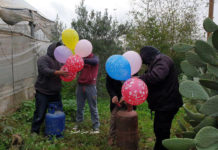

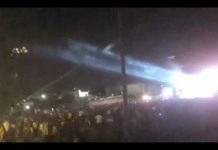
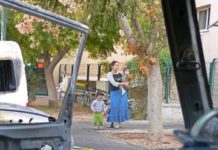

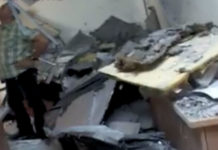
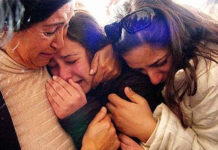

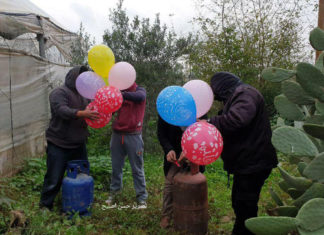
Superior tihkning demonstrated above. Thanks!